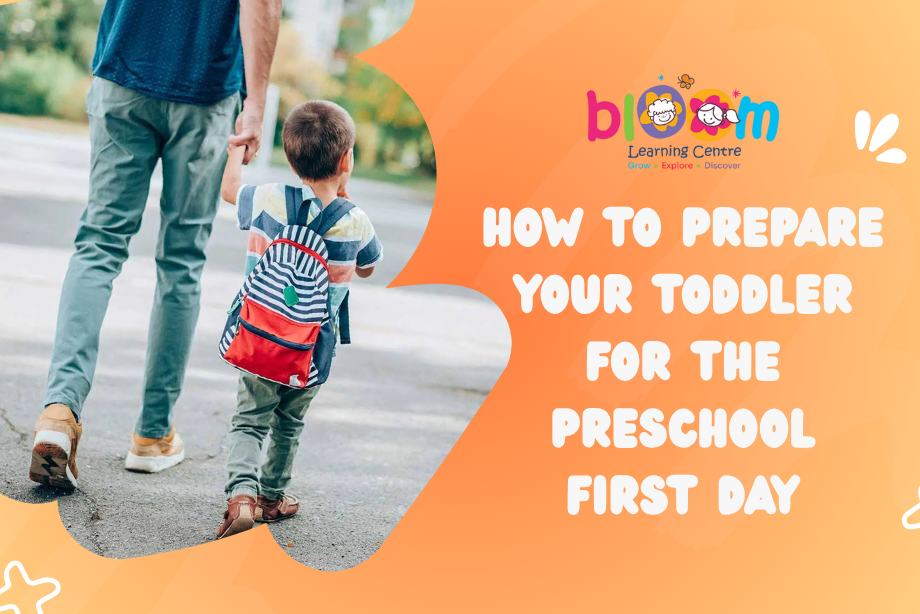


Preparing your toddler on the first day of their preschool is a challenge for both parents and the child. The feeling of separation is itself painful for both, yet the journey needs to be started. Starting their journey to preschool is the most important milestone for a child’s growth.
Many parents experience this situation as a mix of emotional turbulence, excitement, and a feeling of nervousness. This mix of emotions is quite natural as the toddler will be stepping into a new world where he will discover new friends, new routines, and a fresh learning experience. It would be painful to witness tears, tantrums, or fear of separation, but with proper preschool readiness, your kid will have a smoother first day at preschool.
Every concerned parent wants to help their little one cope with and embrace this big step in their life. If you too share the same feeling, then this guide will help you make the right toddler preschool preparation, ensuring the beginning of a new journey for your child.
Preschool is not just the start of learning; it’s the start of growing.
Readiness itself requires proper planning and ground-level preparation to achieve your goal.
“Is my child ready for preschool?” This is the most common question that most first-time parents ask. The answer to preschool readiness lies in preparing your child emotionally, socially, and mentally for learning in a group in this new world of academics. The most important thing children should learn is adaptability. If your child adapts well to his new environment, develops the ability to follow simple routines, explain his needs to teachers and caregivers, and interact positively with other students, they will soon become ready for preschool.
Before the toddler can begin on his new journey, parents should prepare a preschool readiness checklist. This unique checklist is not about ABCs or counting numbers that the child will learn in the classroom. It is actually a self-help guide for the child, helping them listen to instructions and develop essential skills during the initial days of preschool.
Preschool readiness isn’t about what your child knows—it’s about how they grow.
Preschool readiness isn’t as difficult as it sounds. In reality, it takes little effort and smart observations to prepare your toddler for his first day at school. There are certain signs and signals that you should look for.
Here’s a quick toddler preschool checklist consisting of signs to guide you:
Please take these as signs of preschool readiness, not rigid rules. Every child is unique and may excel in one area of life, but they may need support in another, which is perfectly normal.
Readiness shines differently in every child—celebrate their unique progress.
Do you feel that the preschool transition is tough? You only need to prepare for a few common hurdles, and your transition will be smoother than expected. Let’s understand the preparations you need to make.
By practicing the right preschool preparation tips, your challenges become opportunities. Leverage these opportunities for all-around growth and development of your child.
Every challenge is just a stepping stone to your child’s independence.
Here are a few practical tips for preparing your toddler for preschool. Implementing these tips will provide a positive experience. Let’s understand them:
These preschool tips for parents help toddlers adjust gradually to their new world and make the transition smoother.
Practice today makes the first day smoother tomorrow.
It’s not just children who face first-day challenges; even the parents do. It is quite natural for the child to feel nervous, and the pain of separation is inevitable for both. Parents must adopt a calm attitude to reassure their child that everything is fine.
Some useful preschool transition tips for parents include:
Preparing your child to be emotionally strong for the first day of preschool helps build their confidence.
A parent’s calm is the anchor that steadies a child’s first steps.
Sometimes, parents might be unsure about when to start preschool. If your child isn’t ready, it’s okay to wait; you don’t ned to hurry. Monitor your child’s progress using “Signs Your Toddler Might Be Ready for Preschool.” If, for some reason, the milestones are delayed, you need to consult a professional for guidance and support.
Flexibility today ensures confidence tomorrow.
With several preschools available in your vicinity, you must check out a few essential aspects. These aspects will complement your efforts to search for the best preschool near me. These essentials are:
During your visits to various schools, note down the answers in your diary. Remember that a strong partnership between parents and teachers builds the foundation for the child’s success.
If you’re exploring preschools in Cayman, check the reviews by the parents of past students. Always adopt a community-centered approach while deciding if parents trust those institutions.
The right preschool choice sets the stage for a lifetime of learning.
At Bloom Learning Centre, we recognize the significance of this first step for families. Our preschool in Cayman provides:
Bloom allows parents to schedule a tour, book a visit, or contact our team to see how Bloom supports your child’s journey.
At Bloom, every child blossoms into their best self.
No two children are the same. Whether your toddler jumps in eagerly or takes baby steps, enrolling him in a supportive toddler program ensures proper development and growth.
Parents can explore the preschool enrollment opportunities available in Cayman. Discover the best preschool programs in Cayman designed for nurturing young minds.
Preschool is not the final destination; it is actually the beginning of a lifelong adventure.
Many preschools offer support; just inform teachers and send extra clothes.
Yes, if they meet basic preschool age requirements and show readiness signs.
It usually improves within a few weeks with consistent routines.
Yes, check with the schools if they offer half-day or customized options.